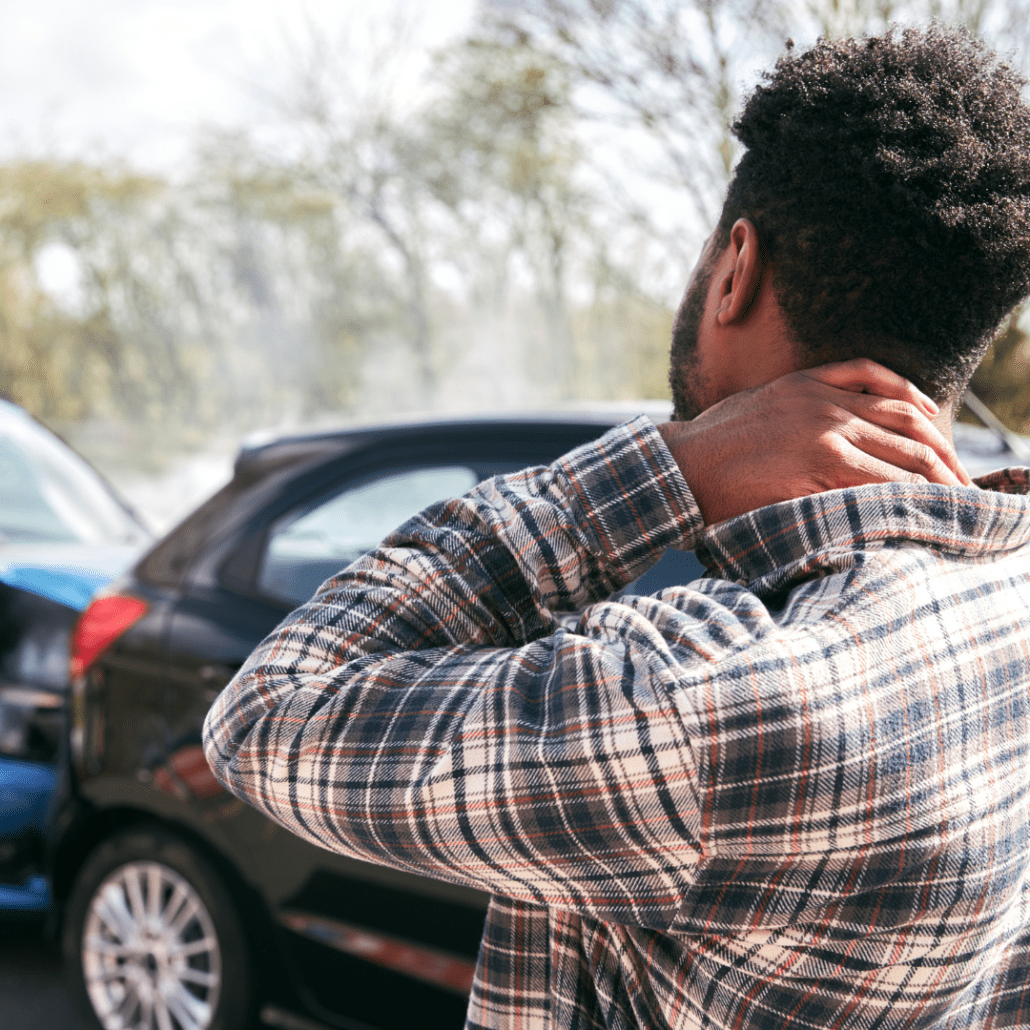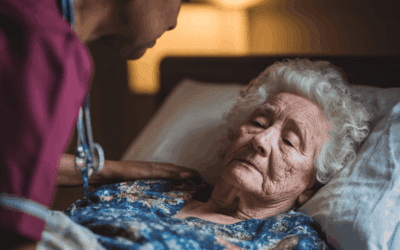As a rideshare passenger, you’re facing unique injury risks apart from those in personal vehicles. Your seatbelt might be missing, the driver could be distracted by the app, and you’re likely sitting in the more vulnerable back seat. Many victims don’t realize how serious their injuries are until days later, when pain intensifies. Understanding the most common injuries in rideshare accidents and how they might affect your life is essential before you step into your next Uber or Lyft.
Whiplash and Neck Trauma in Rideshare Collisions

When you’re suddenly jerked forward or backward during a rideshare accident, your neck absorbs much of this traumatic force, often resulting in whiplash. This common injury damages neck muscles and ligaments, but whiplash symptoms mightn’t appear immediately.
Watch for neck stiffness, persistent headaches, and dizziness in the days following your accident.
Don’t underestimate these symptoms—approximately 50% of whiplash victims develop chronic pain lasting months or years. If you’re experiencing neck discomfort after a rideshare collision, seek medical evaluation promptly. Untreated whiplash can greatly reduce your quality of life.
Treatment options typically include rest, physical therapy, and sometimes chiropractic care to restore mobility and manage pain.
Your healthcare provider will develop a personalized recovery plan based on your specific injury severity and symptoms.
Traumatic Brain Injuries: The Hidden Danger
Why are traumatic brain injuries so concerning in rideshare accidents? Unlike visible injuries, TBIs can occur without direct head impact, simply from your brain shifting inside your skull during sudden stops. You mightn’t immediately recognize the damage that’s happening.
Concussion symptoms range from mild headaches and temporary confusion to severe cognitive impairments and chronic pain.
What’s particularly troubling is the unpredictable nature of brain recovery. While some passengers fully recuperate, others face lifelong challenges with memory, mood regulation, and increased risk of depression or anxiety.
Don’t dismiss even minor symptoms after an accident. Early intervention greatly improves outcomes, with rehabilitation often including cognitive and physical therapy.
Spinal Cord Damage and Long-Term Consequences
Unlike many injuries that heal completely, spinal cord damage from rideshare accidents can permanently alter your life trajectory. The higher the injury occurs on your spine, the more extensive the functional loss you’ll experience, potentially resulting in partial or complete paralysis.
Your rehabilitation expedition will likely involve multiple therapies and possibly surgical interventions to stabilize your spine.
You’ll face challenges outside of mobility, including potential loss of bowel or bladder control and chronic pain that persists long after the accident.
The emotional toll shouldn’t be underestimated—depression and anxiety commonly accompany spinal cord injuries.
You’ll need to adapt your living environment with assistive devices and modifications to accommodate your changed mobility. These adjustments represent the profound, lifelong impact that serious rideshare accidents can have.
Bone Fractures and Joint Injuries Common to Passengers
Passengers in rideshare vehicles face distinctive fracture and joint injury risks during accidents. When your body absorbs collision forces, bones can break in various ways—from closed fractures (where skin remains intact) to open fractures (where bone penetrates skin).
Joint stress occurs as your body jerks during impact, particularly affecting your knees, shoulders, and hips.

- Complete fractures sever bones entirely, while incomplete fractures result in cracks without complete separation.
- Depending on age, health, and fracture severity, recovery timelines span weeks to months.
- Surgical intervention may be necessary for complex fractures, affecting your mobility during healing.
- Joint injuries often involve torn ligaments and tendons, requiring specialized rehabilitation approaches.
Your healing process depends on proper diagnosis and treatment—don’t underestimate even seemingly minor fractures or joint pain after a rideshare accident.
Psychological Impact: PTSD and Anxiety After an Accident
The psychological aftermath of a rideshare accident often extends far outside physical injuries, creating invisible wounds that can profoundly affect your daily life. You might experience anxiety, panic attacks, and intrusive flashbacks that disrupt your routine and mental well-being.
Even without physical trauma, PTSD can develop, manifesting as avoidance behaviors—you may find yourself unable to use rideshare services or even travel in vehicles. These symptoms shouldn’t be dismissed; untreated emotional trauma typically worsens over time.
Your emotional recovery deserves the same attention as physical healing. Seeking professional help through therapy options like cognitive behavioral therapy can provide vital coping strategies.
Remember that acknowledging these psychological effects isn’t weakness—it’s a significant step toward complete recovery after your accident.
Soft Tissue Injuries and Their Recovery Timeline
When you’re involved in a rideshare accident, soft tissue injuries often develop even if you feel fine initially. Whiplash, a common soft tissue injury, typically manifests as neck pain, stiffness, and headaches days after the collision due to sudden head movement.
Effective injury management depends on several factors:
- Severity assessment – Medical evaluations and diagnostic imaging determine the extent of damage.
- Early intervention – Seeking prompt medical attention prevents chronic issues.
- Treatment adherence – Following prescribed physical therapy regimens accelerates healing.
- Recovery expectations – Understanding that healing timelines vary from days to months helps manage frustration.
Don’t ignore persistent symptoms, as untreated soft tissue injuries can lead to chronic pain and mobility limitations.
Your recovery process may require patience, but proper care improves long-term outcomes.
Compensation Options for Rideshare Accident Victims
Three primary compensation avenues exist for victims of rideshare accidents seeking financial recovery.
You’re typically eligible for reimbursement of medical expenses, including emergency treatment, rehabilitation, and ongoing therapy needs. Lost wages can be recovered if your injuries prevent you from working during recovery.
You can also pursue compensation for pain and suffering, addressing both physical and emotional distress resulting from the accident. This extends to long-term care costs, including home modifications and assistive devices if your injuries cause lasting disabilities.
Determining your compensation eligibility often requires skilled legal representation to navigate the complex insurance policies involved in rideshare accidents.
An attorney can help guarantee you receive fair compensation for the loss of quality of life and daily functioning impacted by your injuries.
Steps to Take Immediately Following a Rideshare Injury

Protecting your health and legal rights requires immediate action after experiencing a rideshare accident injury. Your swift response can significantly impact both your recovery and potential compensation.
- Call 911 immediately to report the accident and request medical assistance, even if injuries seem minor—proper accident reporting creates an official record.
- Document everything by taking screenshots of your ride details and collecting contact and insurance information from all parties involved.
- Seek medical attention promptly, as some injuries, like whiplash or concussion, may have delayed symptoms that worsen without treatment.
- Contact the rideshare company after consulting with a personal injury attorney to initiate insurance claims and confirm the company’s awareness of the incident.
Why Legal Guidance Matters After a Rideshare Injury
Rideshare accidents can leave you with more than just physical pain—they can disrupt your ability to work, affect your relationships, and create long-term emotional distress. From hidden injuries like traumatic brain damage to chronic conditions like PTSD or spinal trauma, the aftermath isn’t always visible at first glance. As you’ve learned, many symptoms don’t appear until days after the accident, and without timely action, they can become harder to treat and prove.
That’s why it’s critical not just to seek medical attention, but also legal guidance. Navigating insurance claims, understanding your rights as a rideshare passenger, and securing the compensation you deserve is a complex process. You don’t have to go through it alone.
At Calandro Law, we specialize in personal injury cases and have the experience to handle the unique complexities of rideshare accidents. We’re committed to helping victims recover physically, emotionally, and financially, providing the compassionate support and legal expertise needed every step of the way.
If you’ve been injured in a rideshare accident, contact Calandro Law today for a free consultation and learn how we can help you protect your rights and pursue fair compensation.



